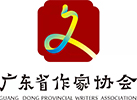
标题

标题
内容
首页 > 自定义类别 > 海上丝绸之路文学发展论坛 > 发言
全球化格局下的文学创作
更新时间:2018-11-11 作者:君盈绿 (新加坡)来源:广东作家网
大家都知道,我们今天住的地方叫着地球村,而不只是地球上的某一个角落。因为交通的发达,科技的日新月异,已把天涯化成咫尺。也因为人的四处流动,带动了无论是经济或文化的交流。而这一切,也直接或间接影响了艺术的创作。虽然,文学创作是非常个人的艺术成果,但是地球村所提供的文化交流,往往都凸显了创作绝对不是个人的事。那不仅牵涉到国家,也关乎本身的语言与文化认同。
世界的格局将来是多元并存的时代,不是现在某一个国家独大的时代,这点,不管是政治、经济或文化都一样。
我来自新加坡,所以我要说的是新华文学。所谓新华文学就是新加坡华文文学的简称。首先说说新马文学,由于地理关系,新马文学融汇了中西方文化的特质,但是它又有别于中西文化,是世界多元文学创作的尝试与探索。世界多元文化和谐共生是发展的趋势,而东南亚文学就是可贵的先行者与模范,是其融汇发展的先声。
众所周知,在新马两地分家之前,这两个国家的华文文学统称为马华文学。那个时候的新加坡华文文学创作者及作品占了马华文学中的绝大部分,因为当时新加坡有不少所谓的南来作家(在1950年以前来自中国)和本土受过中华语文与文化熏陶的写作人,当然,他们都是华人。一直到1990年代以后,由于新加坡教育政策的改变,学生不再以华文为第一语文,因此华文程度每况愈下,对华文写作的掌握只能望门兴叹。而马华文坛上除了成名老作家,年轻的新作家也比比皆是,因此,马华文学的创作活跃程度就渐渐地超越了新华文学。再后来,两者的差距越来越大。
当然,新华文学的总体表现(其实跟新加坡华文的总体表现很有关联)有其历史因素,因为母语教育的改革 新加坡自80年代开始逐步以英文做为第一语文,其他族群的母语变成第二语文。因此,华族的母语,华文开始慢慢式微。但是,马来西亚还有保留一些华校,加上华族挚爱捍卫自己的语言文化,所以华文程度超越新加坡势所必然。
我们都知道,语言和文化是不可分割的,学习一种语言,无形中也会学习到这种语言背后的文化。没有了母语的学习,便自然流失了学习母族文化的机会。没有了文化的支撑,语言再美, 也只是一个空壳,在创作上似乎无法拿捏到自己所要表达的实际体验,那又怎能写出铿锵有声的文字呢?
新加坡是世界交通枢纽,加上以英语为第一语文,更是深受西风影响。在纯英文环境里熏陶成长的华族下一代,对于自身的语言文化根本不屑一顾。
所幸,我们有一批早期纯华校生的作家,他们年轻时热爱写作,而且都表现不俗,但是当年因为工作,不得不为稻粱谋而放弃写作。那是很可惜很遗憾的。不过,这些真心热爱创作不计得失的华文作家,在退休后重新拿起笔杆,孜孜于创作。他们都希望能赶在夕阳时刻,与时间赛跑,创作了不少可以在华文文学史上占有一席之地的作品。
另外,新移民的融入也为新加坡全球化的文学现象添上异彩。近年来,中国有不少专家学者到新加坡工作,他们有的也热爱中文创作,常有作品在报章杂志发表,这也拨动了本土人的心弦,因此百花齐放。还有,跟着他们来的孩子以及纯粹从中国到新加坡来求学的孩子,也经常挥动笔杆,创作了一篇篇动人的文章,他们的华语文程度都很高,文字应用绰绰有余。这些新移民的融入,确实给新加坡带来一支生力军,而不论是报刊或杂志或出版社,也都尽量给这批年轻的写作者发表的空间以资鼓励,因此,新加坡未来的华文创作,似乎指日可待。这有赖于老一辈及年轻一代的共同努力,希望明天会更好。
Literary Creation In The Context Of Globalization
Jun Yinglv (Singapore)
As we all know, we live in a “global village” rather than a corner of this planet. Thanks to the development of transportation and the advancement of science and technology, the long distance between one another can be easily covered. The migration of people also promotes both economic and cultural exchange, all of which have influenced the creation of art. Although literary creations are achievements for individuals, the cultural exchange in the global village indicates that they are by no means only about individuals. They are closely related to countries as well as the language and cultural identity.
The world will become more diversified and inclusive. It is not the era during which one single country stands out. This is true for politics, economy as well as culture.
I come from Singapore and I would like to talk about Chinese literature in Singapore. First of all I want to talk about Singaporean and Malaysian literature. Because of the geographical characteristics, the Singaporean and Malaysian literature combines features from both Chinese and western cultures, but it is still different from them. It is an exploration of the multicultural literary creation. Diversification and harmonious coexistence is the trend for the world’s culture, and literature of South-eastern Asia serves as the pioneer and exemplary model for the integrated development.
It is well known that before Singapore separated from Malaysia, Chinese literature in this area was called Malaysian Chinese literature. During that period, most writers of Sinophone literature came from Singapore. This was because there were many authors in Singapore who came from China before 1950 and who were greatly influenced by Chinese language and culture. They were all Chinese. However, after the 1990s when the education policy in Singapore was changed and Chinese was no longer the first language, the proficiency of Chinese language and the creation of Chinese literature went downhill. At the same time, there were many well-known and seasoned authors as well as young and emerging ones of Chinese literature in Malaysia, the Malaysian Chinese literature became more active than Singapore. And the gap became wider as time went by.
Without a doubt, the status quo of Singapore Chinese literature (which is closely related to the development of Chinese language in Singapore) is resulted from many historical factors. Since the 1980s, Singapore carried out the reform for the mother-tongue education that English was taken as the first language while the mother tongue of different ethnics became the second language. As a result, Chinese as the mother tongue of Chinese ethnic gradually lost its significance. On the other hand, Malaysia kept some schools teaching in Chinese and Chinese Malaysian took great efforts in defending their language and culture. Therefore, it was inevitable that Malaysian Chinese literature took the lead.
Language and culture are inseparable. To learn a language, one will also learn about the culture. Without the chance to learn the language, one losses the chance to get to know the culture. Without the support of the culture, no matter how beautiful the words are, they are empty. Without the understanding of the expression, how can one write powerful and moving words?
Singapore is the transportation hub of the world. As English is its first language, it is greatly influenced by western culture. Growing up in an English-only environment, the new generation of Chinese ethnic does not care about the language or the culture.
Fortunately, there are some outstanding authors who graduated from schools teaching Chinese and had passion for writing since their early age. They had to give up writing to make a living. But these writers who truly love writing regardless of personal gains devoted themselves to writing after they retired from their work. They want to run against time in their later years and have created many works influential in the history of Chinese literature.
In addition, the integration of new immigrants also brought more colors to the globalization of Singaporean literature. During recent years, many experts and researchers came to Singapore from China. Some of them love Chinese writing and have published many works on newspapers and magazines, which encouraged the locals to contribute more varieties to the Singapore Chinese literature. Children of the immigrants and overseas students from China also actively participate in writing and have written plenty of touching articles, thanks to their good mastery of Chinese language. The integration of immigrants injects vitality to Singapore literature circle. Newspapers, magazines and publications also provide them space to publish their works as a way of encouragement. Therefore, the revival of Singapore Chinese literature can be expected. This depends on the concerted efforts by both old and young generations. I wish Chinese literature in Singapore will have a brighter future.